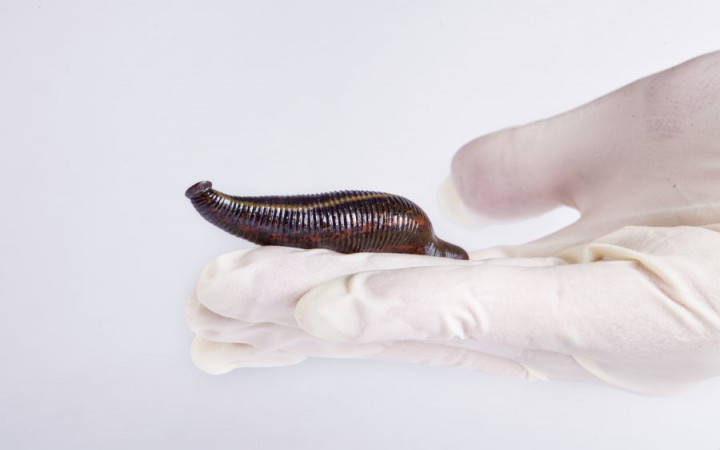Have you ever thought about how exciting it would be to go exploring in the depths of a wild jungle in the middle of nowhere on another continent? As you use your machete to cut your way through dense foliage, the exotic sounds of animals like monkeys and birds fill the air all around you.
With sweat dripping into your face, you slice through a fence of reeds to find a beautiful pool of inviting water. Without hesitation, you throw your supplies and tools aside and plunge head-first into the waiting oasis.
At first, the water cools your scorched skin. The relief from the jungle heat doesn't last long, though. Soon, your skin begins to tingle with a burning sensation, as if you're being bitten by something.
You jump from the water to find your body covered with dozens of worm-like creatures that have attached themselves to your skin and appear to be feasting on your blood. Are they vampire worms? Not quite! They're leeches!
Leeches are real creatures that look like flat, wide, segmented worms with suction cups on each end of their bodies. Usually a dark brown, green, or black color, leeches can be plain or feature spots and stripes.
These unique creatures can range in size from less than an inch to nearly 10 inches in length. And, yes, those leech species that feed on the blood of fish, animals, and humans also have sharp teeth.
Unfortunately, you don't need to find yourself in a wild jungle half the world away to find leeches. There are hundreds of species of leeches and they can be found all over the world. While a few leeches can be found in oceans or moist soil on land, most leeches prefer to live in shallow bodies of fresh water.
If you find a leech attached to your body after a swim, don't panic. Most leech bites are not harmful. As with any bite, there's a chance of infection or an allergic reaction. However, most people don't suffer any permanent harm from leech bites, since they can't suck enough blood to hurt a human being.
In fact, leech bites can be quite the opposite of harmful. Physicians have used leeches to treat human ailments as far back as the days of ancient India and Greece. Back then, physicians thought leeches could remove "bad blood" from a sick patient.
Bloodletting as a popular medical procedure went away hundreds of years ago. However leeches have managed to find a new place of honor in modern medicine.
Modern scientists have learned that leeches secrete a substance while sucking blood that acts as an anti-coagulant. This substance helps to increase blood flow and keep blood from clotting.
Advanced procedures, such as skin grafting, plastic surgery, and reattachment of body parts, have benefitted from the use of leeches to prevent clotting and keep blood flowing to sensitive areas after surgery. Without the use of leeches, many of these surgeries would fail due to blood clots and restricted blood flow after surgery.





